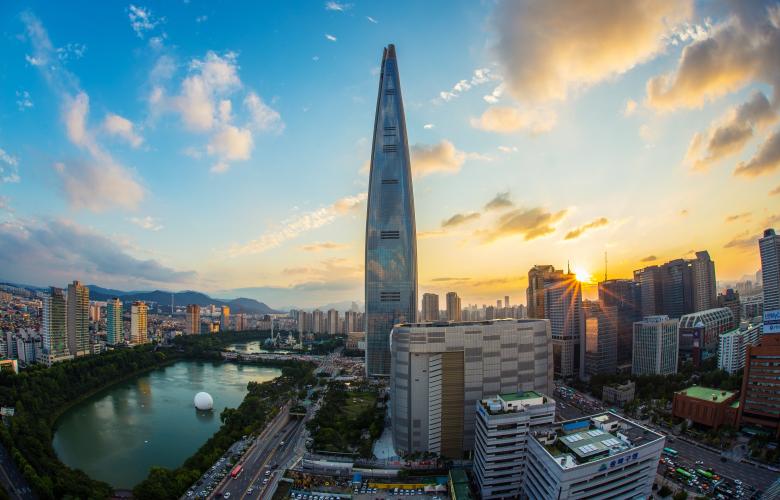Rapid growth in Seoul's flexible office space
Contact
Rapid growth in Seoul's flexible office space
CBRE Korea's study of flexible office space in Seoul finds 90% of co-working spaces are within major business districts.
Flexible office space in Seoul has seen rapid expansion, with coworking leading the charge according to CBRE Korea's latest report.
Entitled "A New Era of Work Spaces: Flexible Office Space Goes Mainstream," the report identifies that as the concept of sharing economy and an emphasis on cost saving has become more widespread, traditional offices have begun to offer hybrid working spaces that incorporate the flexibility and collaborative nature that coworking spaces provide.
At a glance
- 90% of coworking space located with core CBD locations.
- Over 30 foreign-operated centres, comprising 17% of total number of spaces, and 40% of total occupied area.
- 46% of coworking space located in Grade A office buildings.
The report reveals that originally coworking centres were exclusively located in the Gangnam Business District (GBD), but in more recent years have expanded into the Central Business District (CBD) and Yeouido Business District (YBD).
Related reading: Philippines to reach 1 million sqm in Manila office take-up
As a result of this, and as of May 2018, over 90% of coworking spaces were located within core locations, reflecting a strong preference for prime areas. The presence of coworking centres in Grade A office buildings has also steadily increased.
Regarding the origin of operators, there are over 30 foreign-operated centres, comprising 17% of the total number of spaces and accounting for over 40% of total occupied area. Over 40% of flexible office space in general and 46% of coworking space, in particular, is located in Grade A office buildings.
Claire Choi, Head of Research, CBRE Korea, told WILLIAMS MEDIA, "The growth of flexible office space, especially coworking centres, in Seoul is being driven by fundamental shifts in technology, the economy and corporate behaviour. These have permanently disrupted the way many businesses and industries operate and resulted in a structural change to how businesses approach their real estate decisions.
"Initially driven by the start-up boom, demand for greater variety among both employees and corporates, and advances in technology allowing people to work anywhere at any time, growth has been given added impetus from large corporations attracted by the freedom flexible office space offers around lease terms and size, as well as the opportunities it creates for collaboration and innovation," she said.
“We’re expecting the emergence of coworking centres specializing in certain industries such as culture and art, architecture, IT and law. Coworking centres are also likely to be located in other property types such as malls, high-street retail and hotels.”
Related reading: 5 things to consider when presenting office space to the Yangon market
CBRE Korea views in the medium term that coworking centres are set to deepen and expand their relationships with large corporate occupiers. In addition to providing workspace, coworking centres could provide real estate facilities management outsourcing, office design services and workplace strategy advisory. Should these services materialize, the coworking sector could emerge as a direct competitor to the mainstream commercial real estate service industry.
Choi concludes, "Although some may see the growth of flexible office space as disruptive, the rise of coworking centres in particular marks the beginning of an important new phases for the Seoul office market."
Click here to view A New Era of Work Spaces: Flexible Office Space Goes Mainstream.
For more information or to discuss the report, phone or email Claire Choi, Head of Research, CBRE Korea via the contact details listed below.
Similar to this:
Philippines to reach 1 million sqm in Manila office take-up
5 things to consider when presenting office space to the Yangon market
Wellness now a key business priority for APAC companies in future






